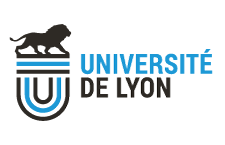ECOFECT > Research > Work package 3
Work Package 3: When Infectiology Meets Ecology

© D. Pontier / ECOFECT
Anthropic perturbations such as climate change, habitat fragmentation, etc. will modify distribution of vectors and reservoirs (insects and mammals), and then geographic distribution of vector-borne diseases and zoonosis (diseases transmitted from animals to humans). On the other hand, we must consider increasing urbanization of human population, particularly in South countries as a major factor that can lead to “urbanization” of new infectious diseases. It is estimated that within 30 years, 70% of people will live in urban centers or megacities.
The WP3 presents a triple challenge:
► To integrate all disciplines: ecologists and evolutionists rarely include infectiology and epidemiology in their studies. Reciprocally, infectiology neglects, by necessity, inter-individual heterogeneity (genetic diversity, infectious status, stress, etc.) and the weight of selection pressures acting on infectious agents, vectors and hosts.
► To go to the natural conditions at all levels of organization. These conditions can deeply affect the host response to a pathogen.
► To enrich "classical" approaches specific to each involved domains by appropriating those of the other domains.
Anthropic perturbations such as climate change, habitat fragmentation, etc. will modify distribution of vectors and reservoirs (insects and mammals), and then geographic distribution of vector-borne diseases and zoonosis (diseases transmitted from animals to humans). On the other hand, we must consider increasing urbanization of human population, particularly in South countries as a major factor that can lead to “urbanization” of new infectious diseases. It is estimated that within 30 years, 70% of people will live in urban centers or megacities.
The WP3 presents a triple challenge:
► To integrate all disciplines: ecologists and evolutionists rarely include infectiology and epidemiology in their studies. Reciprocally, infectiology neglects, by necessity, inter-individual heterogeneity (genetic diversity, infectious status, stress, etc.) and the weight of selection pressures acting on infectious agents, vectors and hosts.
► To go to the natural conditions at all levels of organization. These conditions can deeply affect the host response to a pathogen.
► To enrich "classical" approaches specific to each involved domains by appropriating those of the other domains.



 Welcome
Welcome Communication
Communication Contacts
Contacts Job offers
Job offers links
links WebAdmin
WebAdmin